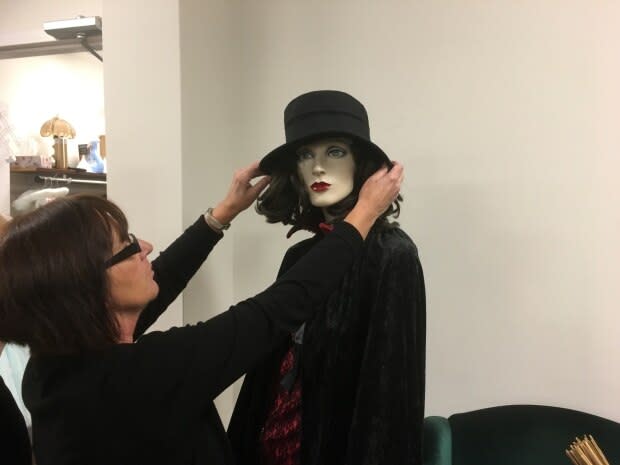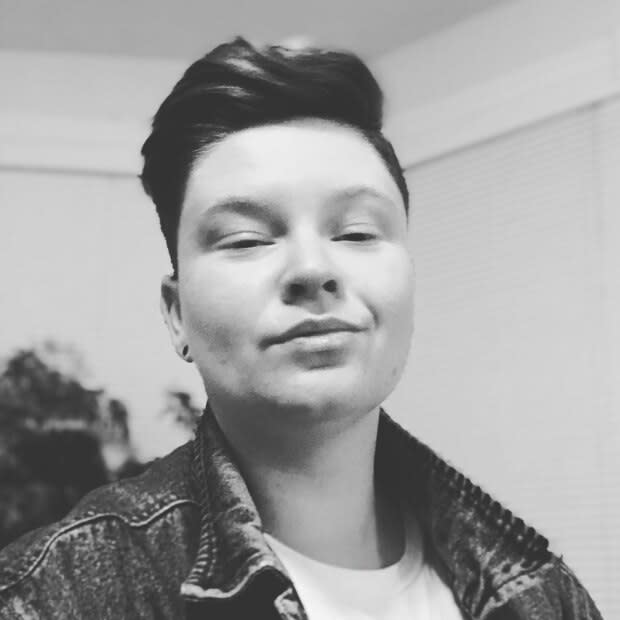'A level of respect': Choosing a Halloween costume that doesn't offend
Pride P.E.I. is hosting a Halloween party on Oct. 26 and they encourage everyone to dress up in costume. But they've made one thing crystal clear — show up in anything culturally insensitive and there will be no trick or treats.
That means if you're white, says Andy Glydon, events co-ordinator for Pride P.E.I., you won't get in wearing blackface or brownface. Others rules they said should go without saying: Only Asians should dress up as Asians, and only Indigenous people should dress up as Indigenous people.
Sugar skulls, or any costumes related to the Mexican holiday Day of the Dead, are also banned from the party.
"People's cultures aren't costumes," Glydon said. "It's making sure that everyone is just there to have a good time and know that their culture is not going to be stereotyped or made fun of."
People's cultures aren't costumes. — Andy Glydon
The revelation that Justin Trudeau wore blackface in costume years before he became prime minister has brought the issue of racial sensitivity and cultural appropriation into public discourse at a time when Canadians are deciding what to wear for Halloween.

Costume stores on P.E.I. say they want to be respectful to all cultures, but sometimes wonder where to draw the line. Mary Matthews, owner of Repeats Family Clothing and Costume Centre in Charlottetown, said people are "really fussy" about their costumes and want every detail covered.
Whoopi Goldberg costume
She said some white customers are asking how they can dress up as their favourite character or personality, if that person happens to be black, without offending anyone.
"Like Whoopi Goldberg, a lot of people love her," Matthews said.
"If I want to dress up as her, I'm not going to look like Whoopi unless I just colour my face a little bit or I buy those uncomfortable rubber masks — and you can get them with her face — and maybe that would be OK, but the makeup isn't?"

Tamara Steele, president of the Black Cultural Society on P.E.I., said there is "definitely a difference between blackface and costuming, but it's a fine line."
"Just like any other form of imitation or borrowing from any culture, I think that there really just needs to be a level of respect there and understanding of what you're doing," she said.
There really just needs to be a level of respect. — Tamara Steele
Steele said blackface — the painting of the face very black, with red lips and white, bulging eyes and the actions that go along with it — is very specific and has a long history of racism.
"So as long as you're kind of steering clear of that specific look and those specific actions, I guess, then maybe there's a little bit of leeway there," she said.
"Maybe just consider, 'Do you really need to paint your skin? How does it improve your costume to do it or to not do it?'"
'At worst, cringeworthy'
As for a white person on Halloween dressing up like a black character or personality they admire, such as the superhero Black Panther, former U.S. president Barack Obama or Whoopi Goldberg, for example, Steele said personally she would not be offended, but knows some people in the black community who would be.
"Maybe a mask is a better option than painting your skin or maybe if you're doing it respectfully, maybe it's not terrible," she said.
"Maybe at worst, cringeworthy, but I don't think I personally would be offended."
Tracy Dooley, owner of Halloween Central in Charlottetown, said she is aware of racial sensitivities around Halloween costumes. She said the store stopped carrying costumes depicting Indigenous culture several years ago. But she said costumes from movies with characters from different cultures, such as Aladdin and Black Panther, are popular with all races.
"We've never had anyone coming in and saying I want to be that costume because I want to mock a culture," she said. "It's more that they want to be that costume because it's their hero or they just like the character."

Aladdin was one of the costumes Trudeau was wearing, with his face darkened, that sparked accusations of racism. Trudeau apologized when the photos surfaced last month.
"I shouldn't have done that. I should have known better, but I didn't and I'm really sorry," Trudeau told reporters.
'Have to be mindful'
At the time, Lisa Cooper, chief of the Native Council of P.E.I., told CBC News that dressing up in something that might be significant to another culture is "very offensive."
"You always have to be mindful that these costumes or outfits, such as the one he's wearing, are something significant to our communities," she said. "It's not a costume, it's meant to be used in special cultural ways."
Dennis John, a social worker on P.E.I. who moved to Canada from India in 2016, said he doesn't believe Trudeau is racist, and would not be offended if a white person coloured their face and dressed as a character such as Aladdin on Halloween.

"It's all about a movie costume. I didn't find any meaning beyond it," he said last week.
"You know being from a [free] country, you are allowed to wear black or brown, as long as it doesn't indicate any emotional or a negative impact to others. Otherwise, you're always allowed to be on your face to celebrate whatever you like."
John said he understands that others think Trudeau's actions were racist.
"It's their own freedom to express and their freedom to explain it. As a personal opinion I don't think it is racist."
Sex worker costumes 'inappropriate'
Glydon said there is some grey area when it comes to superheroes, but if you're unsure about a costume, it's best to err on the side of caution — at least if you want to get into the Pride party.
"If you're not sure, just don't," they said.
Glydon said that extends to any marginalized group, including sex workers.
"So strippers or whatnot," they said. "That's also inappropriate — not on our end because of the sexuality associated with it — but just because that is a livelihood of people. It's a marginalized group of people and you don't want the interpretation of that costume to be taken out of context because it's not a costume."

Matthews and Dooley said Halloween is a happy time at their stores, and customers are excited about picking out their costumes, whatever they may be.
"It's really just about dressing up and having fun and getting to be that character that in your everyday life you don't get to express," Dooley said.
More P.E.I. news


